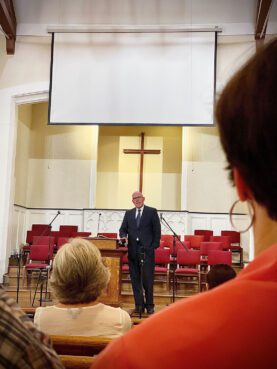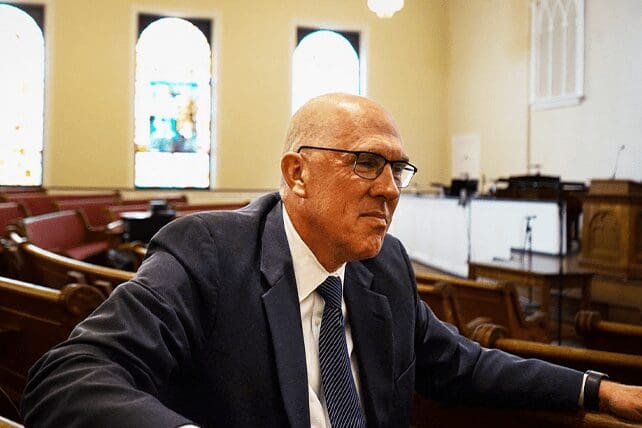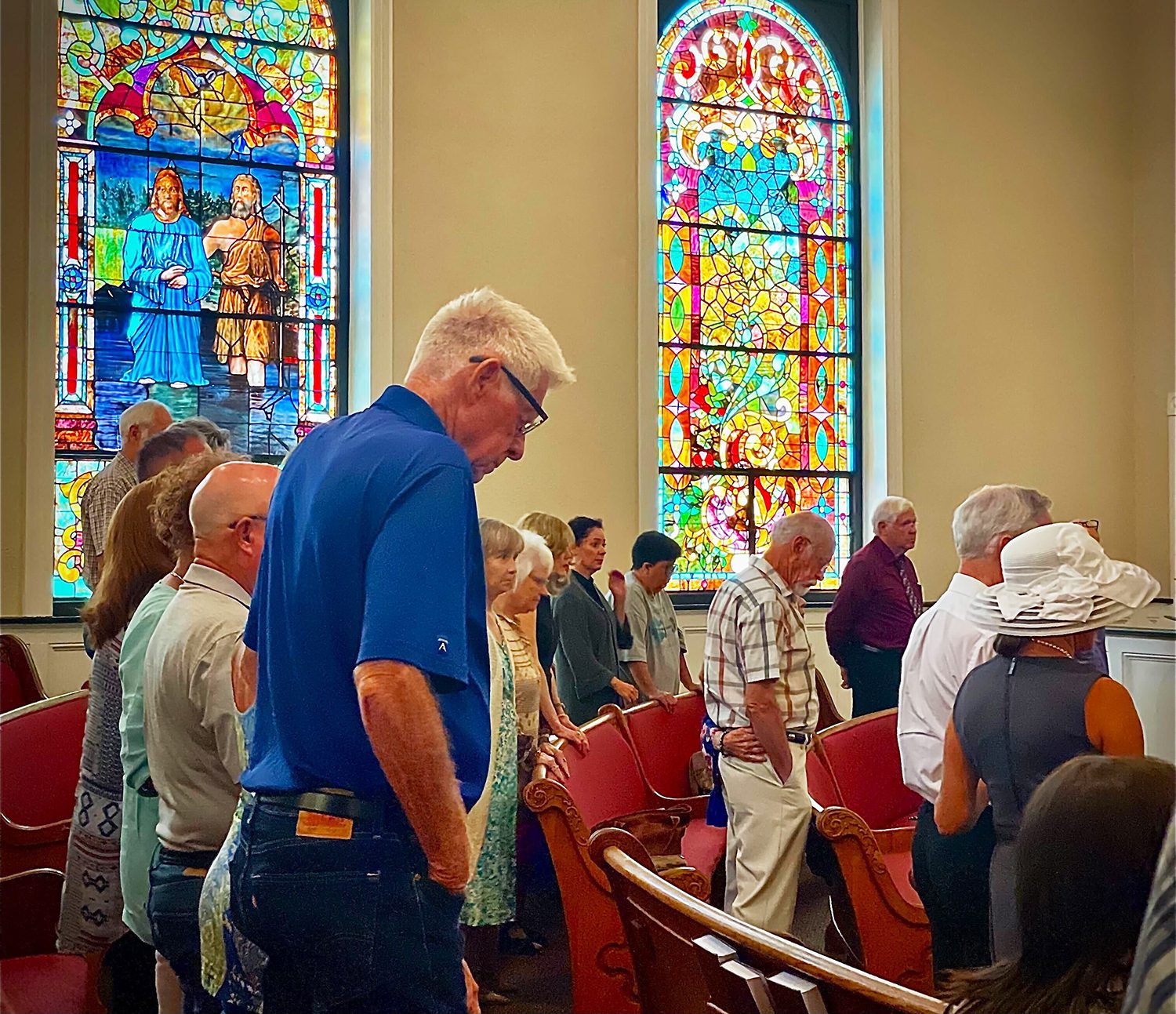Some of his impetus comes from a proposal originally forwarded by Oklahoma pastor Luke Holmes in 2021 and adopted at this year’s meeting in Anaheim that resolved to “establish, help, and revitalize” churches in towns with fewer than 25,000 people.

Bart Barber speaks during a church service at First Baptist Church in Farmersville, Texas. RNS Photo by Riley Farrell
The resolution identifies rural areas as places where “Jesus regularly identified himself with … like Nazareth,” painting small churches as mission fields. It also recognizes the difficulty of leading such outposts, calling attention to rural pastors’ vulnerability to anxiety, isolation and depression.
Barber, who has spent 23 years in Farmersville (population 3,500), said that growing smaller churches is a “timeless” idea and hosted a Twitter Space to explain the rural resolution after it passed.
“It was like, ‘How is it that we haven’t done this resolution yet?’” he said.
Barber often posts photos and videos of his ranch and his cattle — one of which is named Bully Graham — but ranching is more than a branding choice. A re-emphasis on rural churches, he believes, can reconnect Southern Baptists with what initially attracted them to the faith, he said.
Nancy Gilmer, who has been missions director at Barber’s church since 2017 and a “Southern Baptist since before I was born,” agreed that focusing on rural churches made strategic sense. The majority of Southern Baptist churches have 100 members or fewer, said Gilmer.
“Small-town fellowship means the church is my family,” Gilmer said. “We’ve raised each other’s kids, we care about each other, we serve together.”
Gilmer added that Barber is what the SBC needs as it tries to heal divisions that have cropped up over the sexual abuse scandals and over race, which conservatives have blamed on “wokeness.” Gilmer calls Barber a “normal guy” whom God is using to secure a future of a united SBC.
“Outsiders looking in can see that we’re having some family squabbles,” Gilmer said. “God has been cleaning house for the last few years and reshaping us for His glory.”
Members bow their heads in prayer during a service at First Baptist Church in Farmersville, Texas. RNS photo by Riley Farrell
For his part, Barber often talks and tweets about an “army of peacemakers,” referring to a grassroots coalition of Southern Baptists who can find unity in the Bible. Such peacemakers are “the immune system of the church,” he says in his church website’s FAQs.
The army of peacemakers became an unofficial campaign slogan for Barber’s run for presidency, contrasting with #ChangeTheDirection messaging peddled by those in the Conservative Baptist Network, a group of ultraconservatives that has been vocally critical of recent leadership.
“I’m pulling the SBC back from the brink of the sexual abuse scandal, division, factionalism largely created by secular, political forces pushing their way in the church,” Barber told RNS.
“Even if there is a parting of ways or separation in the church, let’s not damage our souls on the way out,” he said.
Identifying the polarity between what he calls the “knuckle-dragging fundamentalists” and “woke or liberal” groups vocal in the SBC, Barber said he does not fit into either camp — and that’s his selling point. (He said he identifies as an “old-time traditionalist” on most doctrinal issues.)


